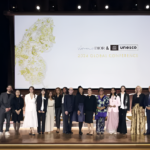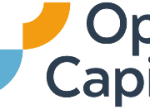Deadline: June 30, 2024
The Global Youth Hackathon on Food Waste is designed to engage passionate individuals in developing innovative, community-based solutions to combat food waste. Participants will collaborate, receive mentorship and refine their proposals through several stages, culminating in actionable initiatives that can significantly reduce food waste within their communities.
Teams and individuals interested in participating can submit preliminary proposals in English, which will be reviewed by a diverse panel of evaluators from WFF, KidsforSDGs, and technical experts. The top 15 proposals will be selected for inclusion in the hackathon. Organizers will pair each project with a mentor from a pool of food waste experts from within and outside the Food and Agriculture Organization of the United Nations (FAO). Mentors will conduct two live online sessions with participants before the hackathon to help refine their projects and pitches.
The online hackathon will feature participants pitching their projects to hackathon judges in breakout rooms. After the hackathon, contestants will revise and resubmit their proposals, including a detailed budget. These will then be re-assessed by the same judges, who will select the top five final projects based on the improvements made.. These participants will receive further mentoring to prepare for live pitch presentations at the 2024 WFF flagship event in Rome.
Eligibility
- Open to young people with a genuine passion for addressing food waste issues and a strong commitment to making a positive impact in their community.
- Applicants must be between the ages of 18 and 35 at the time of the live pitch presentation and may submit their preliminary proposals as individuals or in groups of up to five members.
Selection Criteria
Applications will be assessed based on the following criteria:
- Innovation: Applicants should showcase creative and innovative thinking in their proposed solutions to food waste challenges, showing a willingness to think outside the box. Proposals should demonstrate novel ideas or methodologies that offer unique solutions not commonly employed in current practices.
- Feasibility: Applicants should provide detailed implementation plans that outline how their proposals can be realistically executed with the given resources, timeframes and constraints. Proposals should demonstrate practicality and resourcefulness, considering factors such as financial viability, logistical feasibility and regulatory compliance.
- Impact: Proposals should address specific food waste issues prevalent in the participants’ communities, demonstrating an understanding of local needs and challenges. Furthermore, applicants should articulate a clear vision for the potential results of their proposed solutions, demonstrating how their proposals can contribute to reducing food waste and promoting sustainability at the community level.
- Scalability: Applicants should demonstrate a vision for how their proposals can grow beyond the initial implementation phase and be sustained in the long run, considering factors such as adaptability to different community settings, potential for partnerships and ongoing resource requirements.
At the WFF flagship event, finalists will showcase their proposals to a new panel of final judges and a live audience, competing for the chance to be one of two winning projects, with prizes ranging from USD 500 to 3500.
For more information on FAO food waste resources, please reference the Technical Platform on the Measurement and Reduction of Food Loss and Waste HERE
For more info on the application process, please reference this document
Best of luck and see you at the WFF flagship event at FAO Headquarters!
Click HERE to Apply
Do you need independent help for this application? Click HERE
Disclaimer: Edfrica does not have direct influence nor guarantee the outcome of this application following the support you receive from us








